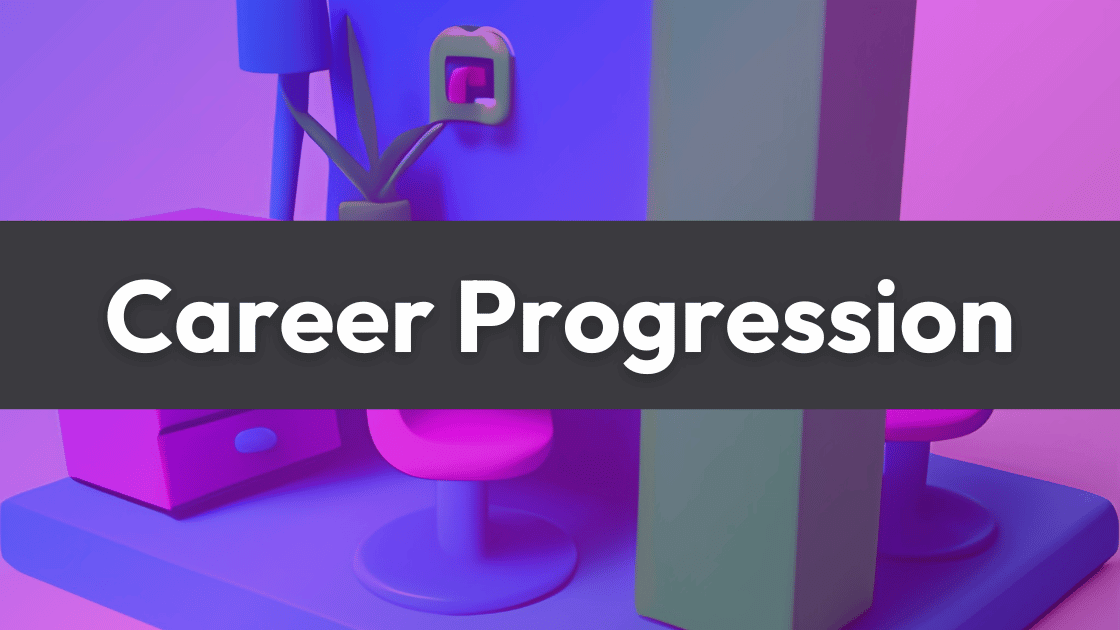Data Scientist - Position Explained
Considering a career as a Data Scientist? Already working as a data professional, but looking broaden your horizons?
You've come to the right place!
In this article, I will cover everything you need to know about being a Data Scientist, what it is, what they do, and the skills required for success, as well as the potential career paths available.
There is also an FAQ section at the end to cover any ground we may have missed.
At Wahl+Case, we have helped hundreds of people land jobs at some of the biggest names in Tech. So, if you're ready to learn all about being a Data Scientist, keep reading!
What is a Data Scientist?
As a Data Scientist, your main responsibility is to leverage advanced statistical and machine learning techniques to extract insights and make predictions from complex data sets.
Your day-to-day tasks will involve:
Collecting, cleaning, and preparing data from various sources, like databases, spreadsheets, or APIs
Exploring and analyzing data to identify trends, patterns, and relationships
Developing predictive models and machine learning algorithms to make forecasts or uncover hidden insights
Creating visualizations and presentations to communicate your findings to stakeholders
Collaborating with other teams, such as data engineering, business intelligence, or product, to integrate your models into the organization's decision-making processes
To learn more about the specific tasks a Data Scientist performs, you can check out this detailed article on Medium.
What Opportunities Does a Data Scientist Have?
Data Scientists are in high demand as more and more organizations recognize the value of data-driven decision-making. Let’s explore the opportunities available for you in various industries.
INDUSTRIES WITH HIGH DEMAND FOR DATA SCIENTISTS
Tech and Software: Tech companies require Data Scientists to analyze user behavior, improve product features, or predict customer churn.
Finance: Banks, investment firms, and insurance companies employ Data Scientists to analyze financial data, forecast market trends, and mitigate risks.
Healthcare: In the healthcare industry, Data Scientists optimize patient care, analyze clinical trials data, and identify potential improvements in hospital operations.
Marketing and Advertising: Data Scientists help marketing teams analyze customer data, segment their audience, and evaluate the success of marketing campaigns.
Retail and E-commerce: Data Scientists in retail analyze sales data, optimize pricing strategies, and predict consumer trends to drive business growth.
Requirements for a Data Scientist
To excel as a Data Scientist, you need a mix of technical and soft skills.
Technical Skills
Programming languages and tools: You should be comfortable working with various programming languages and tools, such as Python, R, or Scala for data manipulation and analysis, and SQL for querying databases. You can find resources like this LinkedIn Learning path to help you develop these skills.
Statistics and Machine Learning: A strong foundation in statistics and machine learning is crucial for understanding the underlying patterns and trends in data. You should be familiar with concepts like hypothesis testing, probability, regression analysis, and various machine learning algorithms.
Data visualization: Presenting your findings in a visually appealing and easily digestible manner is key. Familiarity with data visualization tools like Tableau, Power BI, or Matplotlib will be advantageous.
Soft Skills
Communication: As a Data Scientist, you'll often collaborate with different teams, so you need strong communication skills to effectively present your findings and insights in a clear and concise manner.
Problem-solving: Being able to approach complex problems and find the most efficient solution is an essential skill. You should be able to break down problems into smaller components and systematically analyze each part.
Critical thinking: You must critically assess the data, question assumptions, and draw valid conclusions based on the available information.
Attention to detail: Ensuring accuracy in your analysis and reporting is vital, so having an eye for detail is necessary.
For a more comprehensive list of the skills needed for a Data Scientist, check out this Simplilearn article.
Career Progression
As a Data Scientist, you can progress your career in multiple directions. Some potential career paths include:
Senior Data Scientist: With more experience, you can move up to a senior data scientist role, where you will tackle more complex projects and mentor junior data scientists.
Machine Learning Engineer: If you're interested in focusing on the development and deployment of machine learning models, you can pursue a career as a Machine Learning Engineer.
Data Science Manager: If you're more inclined toward leadership, you can move into a Data Science Manager role, overseeing a team of data scientists and driving the overall data strategy for an organization.
AI Researcher: As an AI Researcher, you will focus on developing new algorithms, techniques, and models that push the boundaries of artificial intelligence and machine learning.
To explore available Data Scientist positions, message us here!
How to Become a Data Scientist
If you're interested in becoming a Data Scientist, it's crucial to develop the right skills, build a strong portfolio, and connect with professionals in the field. In this section, we will outline the steps you can take to start your journey towards becoming a successful Data Scientist.
Step 1: Obtain a Strong Educational Foundation
To become a Data Scientist, you should have a strong educational foundation in a related field, such as computer science, mathematics, or statistics. Pursuing a bachelor's degree in one of these areas can provide you with the necessary background to understand the concepts and techniques used in Data Science.
Many Data Scientists also hold master's or Ph.D. degrees in specialized fields like data science or machine learning. These advanced degrees can help you dive deeper into the subject matter and gain expertise in specific areas of interest.
Step 2: Learn Essential Data Science Skills
To excel as a Data Scientist, you'll need to develop a mix of technical and soft skills. Start by learning essential programming languages like Python or R, which are commonly used for data manipulation and analysis. Familiarize yourself with SQL for querying databases and tools like Jupyter Notebooks for working with data.
Next, build a strong foundation in statistics and machine learning by studying concepts like hypothesis testing, probability, regression analysis, and various machine learning algorithms. Learn data visualization techniques and tools like Tableau, Power BI, or matplotlib to present your findings effectively.
Develop your soft skills by practicing communication, problem-solving, critical thinking, and attention to detail. These skills will help you collaborate with different teams, approach complex problems, and ensure accuracy in your analysis and reporting.
Step 3: Gain Practical Experience
Hands-on experience is needed for developing your skills as a Data Scientist. Work on personal projects, participate in data science competitions like Kaggle, or contribute to open-source projects to apply your knowledge in real-world scenarios. This experience will help you build a portfolio of work that you can showcase to potential employers.
Consider internships, part-time roles, or even freelance work to gain professional experience in the field. These opportunities can help you gain exposure to different industries, learn from experienced Data Scientists, and understand the challenges and expectations associated with the role.
Step 4: Build Your Network and Engage with the Data Science Community
Networking is an essential aspect of building a successful career as a Data Scientist. Attend conferences, workshops, and online courses to stay up-to-date with industry trends, learn from experts, and connect with other professionals in the field.
Join online communities and forums, such as r/datascience, to learn, share ideas, and engage with other Data Scientists. Building connections with professionals in the field can help you access job opportunities, gain insights into different industries, and receive guidance and mentorship.
Step 5: Tailor Your Job Search and Prepare for Interviews
When you're ready to start looking for Data Scientist roles, tailor your job search to your skills, interests, and preferred industries. Create a resume and LinkedIn profile that highlight your technical and soft skills, as well as any relevant experience or projects.
Prepare for interviews by practicing common Data Science interview questions and refining your communication skills. Be ready to showcase your portfolio, explain your thought process, and demonstrate your ability to tackle complex problems and present findings effectively.
By following these steps and continuously learning, you can successfully build a rewarding career as a Data Scientist. Remember that the field of Data Science is constantly evolving, so staying up-to-date with new advancements and techniques is crucial for long-term success.
If you feel you are ready to find a job in the industry, reach out to us using this link!
Alternative Titles
Data Scientists can have different titles depending on the company or industry. Some alternative titles include:
Machine Learning Engineer
AI Researcher
Data Science Consultant
Predictive Analyst
While these titles may vary, the core responsibilities often remain similar across these roles.
Differences Between the West and Japan for Data Scientists
As you embark on your journey as a Data Scientist, it's important to understand the differences in working environments, expectations, and opportunities between the West and Japan. These differences can impact your career trajectory, job satisfaction, and overall experience in the field.
Working Culture and Environment
In Japan, the working culture tends to be more hierarchical, with a strong emphasis on respecting seniority and maintaining harmony within the team. You may find that communication is more indirect and decisions are often made collectively. As a Data Scientist in Japan, you may need to adapt your communication style and be patient when waiting for decisions to be made.
Job Opportunities and Demand
Both the West and Japan have a high demand for Data Scientists, but the industries where this demand is concentrated may differ.
In Japan, the demand for Data Scientists is growing, but the industries with the highest demand are focused on tech, finance, and manufacturing. As a Data Scientist in Japan, you may need to be more flexible in terms of the industries and companies you target.
Education and Training
In Japan, formal education in Data Science is still developing, and there may be fewer options for university degrees or boot camps. However, online courses are widely available, and you can still develop your skills through these resources. Additionally, Japanese companies offer on-the-job training to help you develop the necessary skills.
Language and Networking
One major difference between working as a Data Scientist in the West and Japan is the language barrier. In Japan, proficiency in Japanese can be a significant advantage when it comes to job opportunities and networking.
If you plan to work as a Data Scientist in Japan, consider learning Japanese to improve your communication skills, build relationships with colleagues, and participate in local networking events.
FAQ
Q: What is the difference between a Data Scientist and a Data Analyst?
A: While both roles work with data, Data Scientists often have more advanced skills in machine learning and predictive modeling. They create and implement complex algorithms and models to make predictions and recommendations.
On the other hand, Data Analysts focus more on understanding and analyzing historical data to extract actionable insights.
Q: What industries do Data Scientists work in?
A: Data Scientists can work in various industries, including tech, finance, healthcare, marketing, and more. Any industry that generates and uses data can benefit from the skills of a Data Scientist.
Q: What kind of education is needed to become a Data Scientist?
A: A bachelor's degree in a related field, such as computer science, mathematics, or statistics, is typically required. However, many Data Scientists also hold master's or Ph.D. degrees in specialized fields like data science or machine learning.
Many professionals also supplement their education with online courses, boot camps, and certifications to develop their skills further. These programs can be valuable for staying up-to-date with the latest advancements and techniques in the field.
Q: Do I need a strong background in programming to become a Data Scientist?
A: While a background in programming is helpful, it's not a strict requirement. However, you will need to develop proficiency in programming languages like Python or R to be effective in a Data Scientist role. You can learn these skills through online courses, coding boot camps, or by working on personal projects.
Q: How do I transition from a different field into Data Science?
A: To transition into Data Science, start by learning the essential skills, such as programming languages (Python or R), statistical analysis, and machine learning techniques. You can then build a portfolio of data projects to showcase your skills to potential employers.
Participating in online forums, attending conferences, and networking with other data professionals can also help you build connections and get a better understanding of the field.
Conclusion
Becoming a Data Scientist can be a rewarding and lucrative career path. As a Data Scientist, you'll have the opportunity to work in various industries, uncover hidden insights in data, and influence the decision-making processes of organizations.
To succeed, you'll need to develop a mix of technical and soft skills, and remain up-to-date with the latest advancements in the field. By following the advice in this article and continuously learning, you can build a successful career as a Data Scientist.
Ready to start your journey as a Data Scientist? Reach out to us at Wahl+Case and let us help you find the perfect opportunity!




























